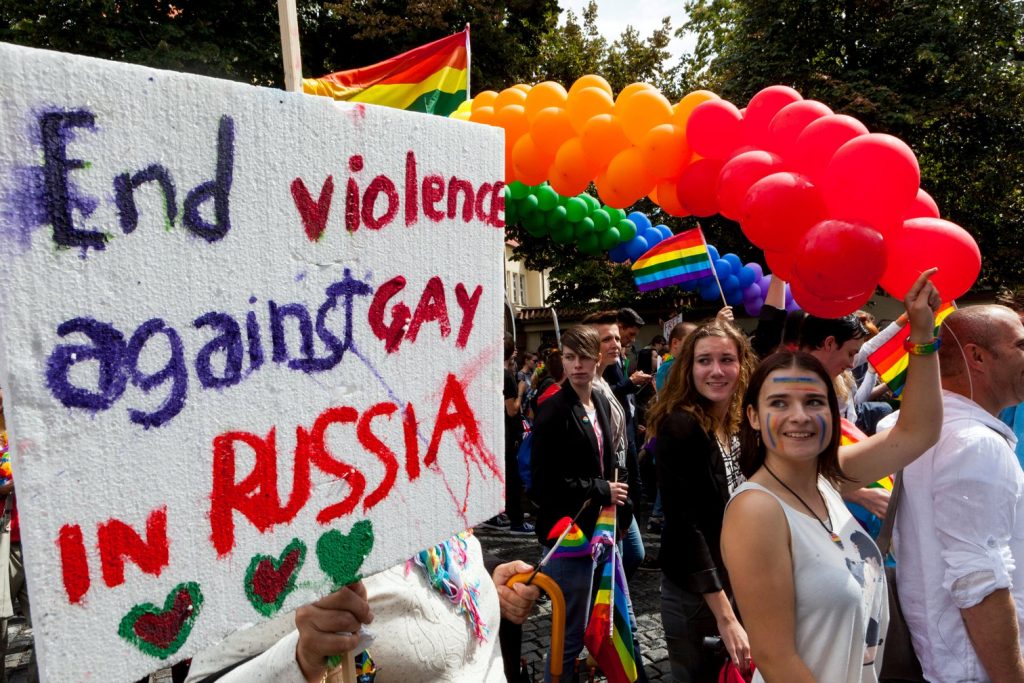Russia’s new anti-LGBT ‘propaganda’ law is already being used to prosecute and deport transgender sex workers
Almost 2 months ago, on 5 December last year, President Putin signed a ban on so-called ‘LGBT propaganda’ into law, prohibiting what it refers to as the “ promotion of non-traditional relationships and gender reassignment” ”, effective immediately.
Whilst a similar anti-LGBT law has been in effect since 2013, banning LGBTQ+ “propaganda” amongst minors, this new law vastly extends these powers, with already wide-ranging effects including banning books and films, whilst transgender TikTok star Dasha Koreika, now additionally being investigated under pornography charges due to her online portrayal of her sex reassignment surgery, was amongst the first to be prosecuted.
Last week, it was reported that Moscow City Court has already registered at least seven charges under the new law. Of the four cases that have reached a decision and have been published, all are against trans women sex workers and none are Russian citizens. The first three women were all brought to court by one police officer, who discovered their profiles on an online advertising platform for sex workers. In his words, their advertisements “publicly expressed interest in the attractiveness of non-traditional relationships” Judge Nikolai Mazurov ruled in agreement that the ads of sex workers contained “LGBT propaganda”, and all three women received fines and were ordered to leave Russia.
The fourth police report was considered in the Timiryazevsky District Court, it differs from the first three, but it contains similar wording – on January 24, a police officer found on FRIM (a popular dating app in Russia) an account of a sex worker. The police report describes “an account about the provision of intimate services of non-traditional sexual relations” The court decided to detain the sex worker for five days and then ordered her to be expelled from Russia.
These prosecutions set an alarming precedent. Sex workers in Russia and the CEECA region, as they are increasingly throughout the world, use the internet to find work, exchange information and build community with other sex workers. For many, this access means a world of difference – the privilege to work indoors, exchange sexual health and safety advice, find support from peers, and to screen clients. Amidst Russia’s increasing climate of hostility towards the LGBT community, these laws being used by individual police officers to target migrant trans women who are amongst the most vulnerable populations of sex workers creates a climate of fear for those communities, who must continue using these online spaces to support their livelihoods. This is besides the terrible trauma and loss suffered by these four women.
Russia is a destination for many migrant LGBT sex workers from Central Asia who have fled due to facing intolerance and safety issues in their home countries, as well as the potential for anonymity and better income. What potentially awaits these women once returned to their home countries is the high risk of violence that comes with being ‘outed’ in their communities of origin.
Amidst the wider scale of brutalities surrounding Russia, both internally against dissidents, and in the invasion of Ukraine, it is still necessary to strongly condemn these targeted attacks against the most vulnerable, who live their lives in danger and precarity even in times of peace and face multiple levels of intersecting oppression. SWAN, together with ECOM, are working on a joint statement and will continue to monitor the situation and react to the unjust treatment of our communities. We also encourage our members and allies to reach out and provide support to the affected women in case their identity is publicized.
